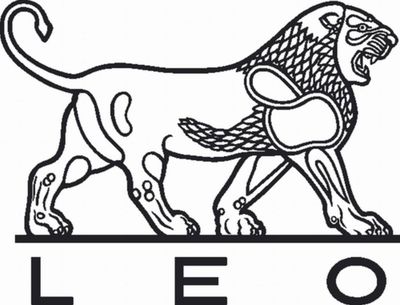BALLERUP, Denmark, June 15, 2017 /PRNewswire/ --
LEO Pharma today announced that the first patients have been dosed in a phase 3 clinical study of tralokinumab. Tralokinumab is an investigational human monoclonal antibody that specifically targets the cytokine IL-13[1], which plays an important role in the development of moderate-to-severe atopic dermatitis[2]. Tralokinumab is not currently licensed in any indication.
(Logo: http://photos.prnewswire.com/prnh/20130221/595427 )
ECZTRA 1, the first clinical study in the phase 3 clinical programme for tralokinumab in atopic dermatitis, is a randomised, double-blind, placebo-controlled, phase 3 trial to evaluate the efficacy and safety of tralokinumab monotherapy in patients with moderate to severe atopic dermatitis who are candidates for systemic therapy.
"Moderate to severe atopic dermatitis is a debilitating skin condition characterised by intense itching, painful skin lesions, and infections. Advancements in the treatment of this underserved condition are necessary," said Dr. Eric Simpson, ICI, Professor and Director of Clinical Trials at the Oregon Health and Science University, Department of Dermatology. "In this phase 3 programme we will establish how tralokinumab's specific targeting of IL-13 might offer a potential new treatment for patients with this complex and chronic disease."
"Eczema patients are in need of new treatment options," said Julie Block, President & CEO, National Eczema Association, USA. "This is a disease with a significant impact on patients' quality of life, and we welcome LEO Pharma's investment in new clinical approaches."
Further information about the trial will be available at https://clinicaltrials.gov
The development of tralokinumab is part of LEO Pharma's recent move into systemic treatments for skin diseases. In July 2016, LEO Pharma acquired the global licence to tralokinumab in skin diseases from AstraZeneca, as well as the exclusive European licence to develop and commercialise brodalumab, an IL-17 receptor monoclonal antibody, for the treatment of moderate-to-severe plague psoriasis. LEO Pharma has partnerships on biologic treatments with AstraZeneca, argenx, and MorphoSys, and a total of six biologic projects in its R&D pipeline.
About Atopic Dermatitis
Atopic dermatitis, also known as atopic eczema, is a serious and chronic form of eczema. It is the most common inflammatory skin disease with prevalence in western countries of 1-3% in adults and up to 20% in children[3],[4]. The severity of atopic dermatitis can be categorised into mild, moderate and severe. The moderate and severe forms constitute approximately 50% and 20%, respectively, of the atopic dermatitis patient pool in a US population-based survey[5]. Atopic dermatitis may, in its moderate to severe form, be a debilitating condition that can be characterised by intense itching, painful skin lesions, and skin infections witch may significantly impact quality of life[6]. There is currently a high unmet need for long-term efficacious and well-tolerated treatment options in atopic dermatitis[7].
About LEO Pharma
LEO Pharma helps people achieve healthy skin. By offering care solutions to patients in more than 100 countries globally, LEO Pharma supports people in managing their skin conditions. Founded in 1908 and owned by the LEO Foundation, the healthcare company has devoted decades of research and development to delivering products and solutions to people with skin conditions. LEO Pharma is headquartered in Denmark and employs around 5,000 people worldwide.
References
1. Popovic B, Breed J, Rees DG, Gardener MJ, Vinall LM, Kemp B et al. Structural Characterisation Reveals Mechanism of IL-13-Neutralising Monoclonal Antibody Tralokinumab as Inhibition of Binding to IL-13Ralpha1 and IL-13Ralpha2. J Mol Biol 2017;429(2):208-219.
2. Brandt EB, Sivaprasad U. Th2 Cytokines and Atopic Dermatitis. J Clin Cell Immunol 2011;2(3).
3. Ring J, Alomar A, Bieber T, Deleuran M, Fink-Wagner A, Gelmetti C et al. Guidelines for treatment of atopic eczema (atopic dermatitis) part I. J Eur Acad Dermatol Venereol 2012;26(8):1045-1060.
4. Wollenberg A, Oranje A, Deleuran M, Simon D, Szalai Z, Kunz B et al. ETFAD/EADV Eczema task force 2015 position paper on diagnosis and treatment of atopic dermatitis in adult and paediatric patients. J Eur Acad Dermatol Venereol 2016;30(5):729-747.
5. Hanifin JM, Reed ML. A population-based survey of eczema prevalence in the United States. Dermatitis 2007;18(2):82-91.
6. Lifschitz C. The impact of atopic dermatitis on quality of life. Ann Nutr Metab 2015;66 Suppl 134-40.
7. Q&A with Dr. Silverberg. Ask the Presenter - Conference Report. AJMC 2016
SOURCE LEO Pharma A/S





